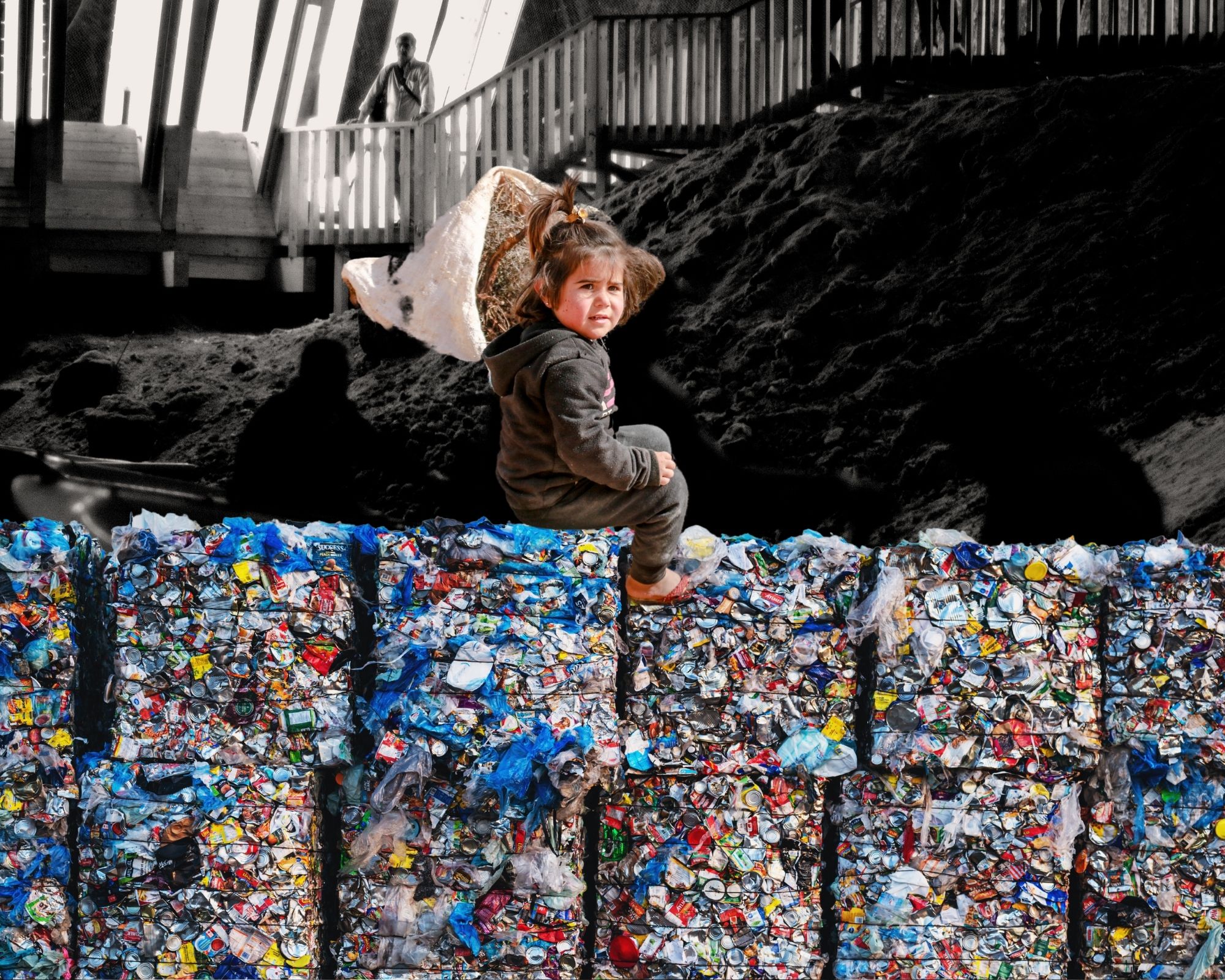Summary:
-
Deiri Fayyad digs through trash cans for recyclable plastics in the Lebanese capital Beirut.
-
Twelve years after the commencement of Syria’s bloody civil war, the 26-year-old Raqqa resident is one of about one million Syrians who have sought asylum in the neighbouring country of Lebanon.
-
“Several of Deiri’s coworkers hail from northern Syria’s Raqqa.
-
Many men from Raqqa now reside in a structure above the garbage dump.
-
They claim they are afraid of being sent back to Syria.
Deiri Fayyad digs through trash cans for recyclable plastics in the Lebanese capital Beirut. The father of three must work at a job that pays little if he wants to provide for his family.
He searches the trash and says, “I start early morning at 8:30 and work for almost 12 hours.
Deiri pushes his body deep inside the bin and opens plastic garbage bags with his bare hands and without any protective clothing to see what he can find. He earns roughly $2 (or £1.63) daily in Lebanese pounds.
Twelve years after the commencement of Syria’s bloody civil war, the 26-year-old Raqqa resident is one of about one million Syrians who have sought asylum in the neighbouring country of Lebanon.
While this is happening, Lebanon has been engulfed in an economic and political crisis for almost four years—hundreds of thousands of Lebanese struggle to pay for necessities like food and medicine.
The government defaulted on its international obligations in 2019, which caused the country’s currency to crash. It fell to a record low of over 110,000 Lebanese pounds to one US dollar in March of this year, losing nearly all of its worth since 2019.
So while almost everyone in Lebanon is struggling, Syrians are the most impoverished people in this country.
Several refugees, some as young as 11, have turned to recycle trash to sustain themselves.
Although NGOs in Beirut promote recycling, it is not a typical practice. Waste management companies have been established to process plastics that can be utilised, for instance, to make commercial and agricultural products.
Deiri is putting used water bottles in a big plastic bag. The stench makes it difficult for me to breathe while I stand and watch closely, so I’m shocked that he keeps going while still grinning.
Deiri works long hours and spends his downtime with the neighbourhood cat, Amber, who feeds him whatever leftover food he finds in the trash cans.
Near the well-known seaside boulevard where he collects plastic, Deiri, his wife Yamama, and their kids reside in a room in a flat they share with two other families. Deiri spends the majority of her monthly income on rent.
There is only one light in the tiny room, a plastic floor covering, and some beds that have been set aside. They have a small gas oven and water bottles for washing on the balcony.
Deiri immediately gives his kids a bear embrace when he gets home.
“I’m unable to provide my children with a good life or the means to send them to school. We are just scraping by, but it’s better than making me seem bad by panhandling.”
Several of Deiri’s coworkers hail from northern Syria’s Raqqa. The only employment they could find in Lebanon, where life is difficult due to the conflict and the violent Islamic State group, was this one.
The employees from Bangladesh who used to come here and were paid in US dollars have recently been replaced by Syrians who are paid very little – and in local currency – for such labour. This is owing to financial issues.
It is difficult to describe the smell at one of the dump sites, where plastic and other trash are recycled and held before being sold. It is oppressive, and it is tough to believe that workers are exposed to it daily without any obvious hygienic precautions.
Many men from Raqqa now reside in a structure above the garbage dump. They are too terrified to speak or be interviewed. They claim they are afraid of being sent back to Syria.
Similar structures can be found all over the city, where about 15 to 20 men squish into ill-equipped apartments to split the costs.
Deiri and her coworkers collect their daily plastic finds at the end of each shift in a designated lot or give them to a Lebanese manager at one of the centres, who weigh them before paying them.
Deiri is eager to escape the nation, much like many other Syrian and Lebanese people. He yearns for a new life elsewhere as his desire to return to a secure Syria wanes.
The fantasy is Europe, but this is the reality, he claims. “I pray that God would enable us to depart. All I want is to give my kids a better life and an education.”


[…] social support programme represents Lebanon’s largest-ever poverty reduction initiative. If successful, it could help lift many vulnerable local families and refugees out of destitution, […]